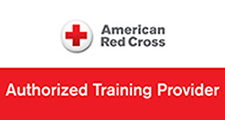





Suicide is a topic that can be hard to talk about, but it’s something that affects people from all walks of life, including individuals, police officers, first responders, and members of the military.
These groups often face unique challenges, such as trauma, stress, and a sense of duty that can make them more vulnerable to feelings of hopelessness. In this article, we'll break down some simple ways to understand suicide, how to recognize the warning signs, and most importantly, how to get help.
Understanding the Feelings Behind Suicide
Suicide doesn't happen out of the blue. It's often the result of overwhelming feelings that make a person believe that life is no longer worth living. These feelings can be caused by:
For police officers, first responders, and military personnel, these feelings can be even stronger because of the high-stress situations they face regularly. It’s not uncommon to feel like you have to be “tough” or that asking for help is a sign of weakness. But feeling overwhelmed doesn’t mean you’re weak—it means you’re human.
Recognizing the Warning Signs
It's important to recognize the signs of someone who might be thinking about suicide—whether it's yourself or someone you care about. Here are some common warning signs:
If you notice these signs in yourself or someone else, take them seriously. Talking about suicide doesn’t make it more likely to happen; in fact, opening up a conversation can be the first step to preventing it.
How to Get Help
If you're feeling suicidal or know someone who is, remember that help is available. Here are some steps you can take:
Special Considerations for Police, First Responders, and Military
Those who serve in high-stress, life-threatening jobs often face pressures that others may not understand. Witnessing trauma regularly, feeling responsible for the safety of others, and dealing with the harsh realities of life and death can take a toll on mental health.
For these groups, it’s important to recognize that asking for help is a sign of strength. Many organizations offer confidential, specialized support for those in these professions.
Building Resilience
There are ways to build mental resilience and cope with stress before it becomes overwhelming:
Suicide can be prevented, and you are never alone in your struggle. Whether you're an individual dealing with personal challenges, a police officer facing the pressures of the job, a first responder seeing trauma on a daily basis, or a military member coping with the weight of service, help is always available.
You matter, and your life is worth fighting for. There is hope, and taking even a small step toward reaching out can make all the difference.
If you or someone you know is in immediate danger, please call 911 or go to the nearest emergency room.
Headquarters:
214-29 42nd Avenue
Bayside, New York 11361
Mailing Address:
214-29 42nd Avenue
Bayside, New York 11361
Phone: + 1 (718) 631-3333
Contact Form
